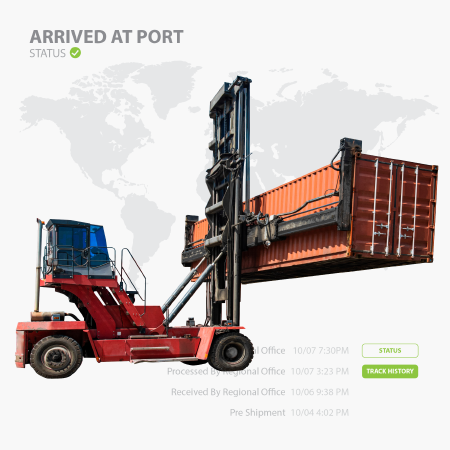How to evaluate a geolocation platform: 8 questions to ask prospective vendors
November 27, 2024

It doesn’t matter how popular or entertaining your gaming app or online lottery site is if you don’t have the right geolocation technology running behind the scenes. The same goes for financial services and supply chain monitoring; your end user trusts that your application has guardrails in place to let them transact safely without worrying about their security or privacy.
The truth is, in such highly regulated industries, compliance is the key to sustained success — and growing revenue. In all of these scenarios, a geolocation platform is working in the background — locating, verifying, and safeguarding transactions to keep your business compliant, customers safe, and operations running smoothly.
But not all geolocation platforms are created equal. Choosing the wrong vendor can leave you with frustrated users and compliance nightmares. Whether you’re launching a next generation gaming app, managing lottery operations, or navigating complex financial transactions, selecting the right platform is your golden ticket to smooth operations and satisfied customers.
So how do you separate the signal from the noise? By asking the right questions and evaluating the features that matter most. Let’s dive into 8 must-have criteria for finding the best geolocation platform for your unique needs.
1. Integration requirements
A geolocation platform must integrate seamlessly with your existing systems to minimize implementation time and keep customers happy. Understanding integration requirements upfront can save you from unexpected roadblocks during deployment.
The best solutions use simple, API-based integrations that don’t require additional software installation on your end — or your customers’.
Key question: What are the technical requirements for integration, and how does your platform handle API requests?
What to look for in terms of integrations:
- A RESTful API that allows you to make a GET request and receive a JSON response is ideal. Look for platforms with clear, accessible documentation and demo tools to make testing straightforward.
- Platforms that offer browser-based options (such as JavaScript) and SDKs for Android and iOS, eliminating the need for extra software downloads or plugins.
2. User experience considerations
The geolocation platform you choose should enhance your end users’ experience, making it easy for them to engage with your application where and how they want. With this in mind, consider how the platform interacts with users and what steps are required for location validation.
The ideal platform works in the background without requiring users to jump through hoops like toggling Wi-Fi settings or downloading plugins.
Key question: What steps does the platform require of users to validate their location, and how does it support a frictionless experience?
To ensure a smooth user experience:
- Opt for a solution that minimizes user effort, such as platforms that leverage GPS, cell tower data, or browser-based location services without requiring Wi-Fi enablement. This way, users can interact with your application wherever they are — on the go or at home.
- Ask whether the platform supports a variety of devices and applications, including mobile phones, tablets, desktops, and multiple browsers — ensuring your users can access services from their preferred devices. Backwards compatibility with older devices is also crucial.
3. Scalability and reliability
No matter how fast your business grows, your geolocation platform must be capable of scaling just as quickly. Make sure to verify whether the provider can handle spikes in demand without compromising performance.
Key question: How does your platform scale during high-demand periods, and is it built on cloud-based infrastructure?
Pro tips:
- Check if the provider has proven scalability for large-scale events common to your industry, like sports tournaments or game launches.
- Cloud-based solutions powered by platforms like Amazon Web Services (AWS), Microsoft Azure, and Google Cloud Platform offer the flexibility to scale up quickly. In contrast, those that rely on dedicated data centers often face limitations during periods of rapid growth.
4. Flexibility of compliance settings
Compliance needs vary widely depending on your industry, region, and unique business model. A geolocation platform that offers flexibility in compliance settings enables you to adjust rule sets to your specific requirements, avoiding the limitations of rigid, black-box solutions.
Key question: Can your compliance rules and settings be customized to meet our specific needs?
To ensure maximum flexibility, look for platforms that:
- Let you fine-tune compliance checks based on your use case. For example, if VPN use is acceptable for your application, you should be able to disable those checks without disrupting other compliance requirements.
- Work with you to create an optimized rule set. The vendor should be able to adjust settings to align with your company’s risk tolerance, industry regulations, and business model.
- Offer control over rejection of non-compliant users. Look for a solution that gives you the data and lets you decide how to act — whether it’s a pop-up notification, gentle warning, or session termination. This flexibility helps align the rejection process with your application’s overall user experience.
- Openly share how their compliance engine operates, including the rules and checks being applied, to help you understand and trust the system.
5. Support and implementation
Implementing a geolocation platform can be a complex and lengthy process, depending on the vendor. The level of support that a company offers plays a crucial role in ensuring a smooth rollout and effective ongoing operations.
Key question: What kind of support do you offer during and after implementation? Will we be assigned a dedicated customer success manager (CSM)?
What to look for in the area of customer support:
- Vendors offering white-glove service. This higher level of guidance means the vendor will walk your team through the setup process, providing expert advice and troubleshooting at every step.
- Robust and extensive self-service resources including documentation, tutorials, and API guides for additional support.
- Ongoing, direct access to a dedicated CSM or account manager beyond the implementation phase. Ideally, they will provide a direct email address or phone number to reach them whenever your team needs additional assistance.
6. Data security and privacy
Handling user location data comes with significant security and privacy responsibilities. It’s important to choose a provider that prioritizes data ownership and compliance to protect your business and users.
Key question: Who owns the data collected by your platform, and what security measures do you have in place to protect it?
To ensure maximum security and privacy, look for vendors that:
- Act as data processors, allowing you to retain full ownership and control of user data.
- Adhere to regulations like GDPR and CCPA, with documented data processing standards and practices for added assurance.
7. Geographic coverage
If your business operates in multiple regions or plans to expand into new markets, geographic availability is a critical factor when choosing a geolocation platform. A platform with expansive geographic coverage will ensure your services are accessible where they’re needed most.
Key question: What regions does your platform support, and how does it perform across diverse geographic conditions?
To ensure geographic coverage, look for a platform that:
· Supports all key markets where you currently operate or plan to expand, ensuring accessibility and compliance across regions.
· Performs consistently in both urban and rural environments, leveraging multiple data sources like GPS, cell towers, and Wi-Fi for accurate location verification.
· Has experience navigating regional regulations and can guide your business through local geolocation and data privacy requirements.
8. Industry expertise
It may seem like an afterthought, but when it comes to geolocation, experience matters. A provider with extensive experience in geolocation and compliance is more likely to deliver reliable, innovative solutions that keep up with current regulatory standards and technology.
Key question: What is your team’s expertise in geolocation and compliance, and how long have you been in the industry?
Verify a vendor’s industry expertise by:
- Evaluating the expertise of key team members. Even newer companies can bring significant authority if their leaders have decades of experience in geolocation, compliance, or related fields.
- Looking for companies with a solid patent portfolio, demonstrating that the platform is built on legally protected technology. Patents highlight a vendor’s ability to develop proprietary solutions that address complex challenges.
- Checking whether the provider employs subject matter experts in geolocation. When teams across the company — including sales and customer success — have specialized knowledge, they can offer deeper insights and tailored support.
- Researching their industry reputation and track record through case studies, client testimonials and reviews, and long-term partnerships with other reputable businesses.
Choosing the right geolocation platform for your unique needs
This crucial business decision comes down to finding a geolocation services solution that adds value to your business. A platform that helps you maximize revenue opportunities while reducing operational risks will far outweigh a lower-cost option that falls short in these areas. Focus on what the platform delivers: extended user reach, robust scalability, and reliable compliance are key.
By asking vendors the right questions, you can confidently choose a platform that aligns with your business goals and helps fuel your long-term success.
Locance is a trusted geolocation platform that checks all the boxes. As the global leader in cloud-based location services with the broadest reach and largest global footprint, our core location services work seamlessly indoors and outdoors across devices, platforms, and networks — without the need for special software or app installations. To see how we can support your geolocation needs, request a demo today.








